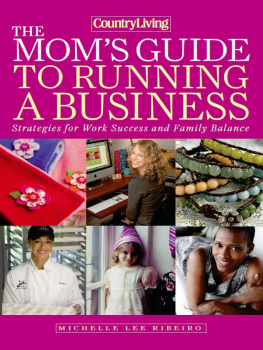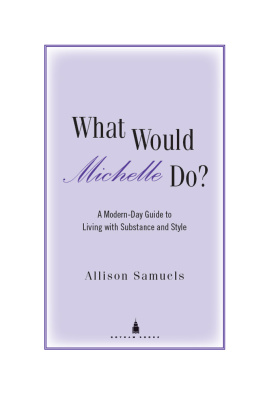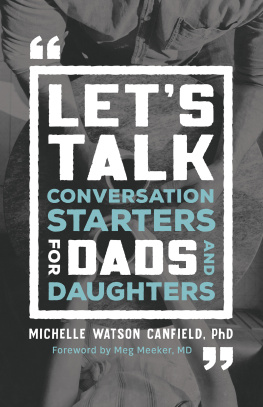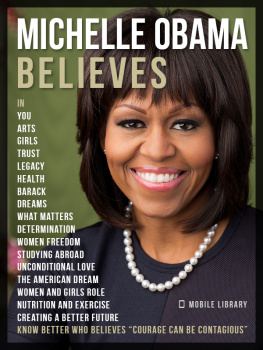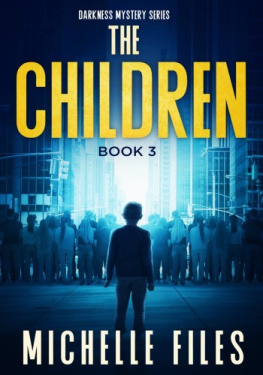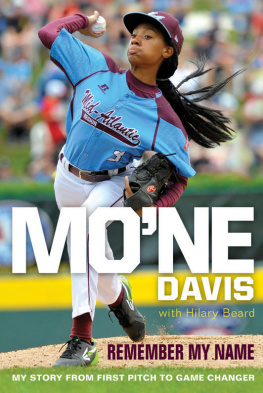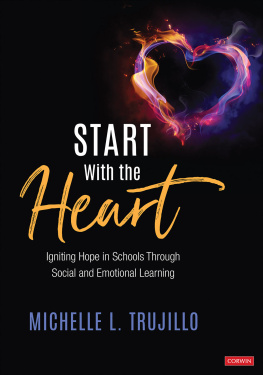Michelle Mone
MY FIGHT TO THE TOP
Michelle Mone
MY FIGHT TO THE TOP
WITH RUTH KELLY

ACKNOWLEDGEMENTS
I would like to thank Mum and Dad for making me believe in my dreams and for bringing me up to respect everyone with manners; my three wonderful kids Rebecca, Declan and Bethany who have given me the determination to be a success; and my late Gran Philips for encouraging me everyday.
I would also like to thank my friends, including Bernard and Eileen Dunn and family; Nigel and Andrea Kelly; John Caudwell; Denise OLeary; AP and Chanelle McCoy; Elena Ambrosiadou; John and Andrea Barnes; Peter and Teresa Lvenkrands, and to everyone else who has been by my side through everything I cant fit everyone in but you know who you are!
Thanks too to my business associates Ted Anders, Sir Tom Hunter, Rob Templeman, Ian Grabiner, David Kaye, Mark Hollingshead, David Dinsmore, Claire Powell, Don McCarthy and all my speaking agents.
I would also like to thank Prince Charles and the Princes Trust, the Ultimo Team, Deshamanya Mahesh Dayalal Amalean and the MAS Board.
Michelle Mone,
January 2015
CONTENTS
PREFACE
M aybe it was all that bullying and heartache that drove me to success.
My childhood was dominated by struggle and tragedy. I slept in the bedroom cupboard in my parents bedroom in Glasgows rough East End; I was bullied, rushed to hospital after being beaten by a gang of ten and cried myself to sleep every night after my father became paralysed from the waist down.
I became a young mum at 20 and almost lost my second child when he was born four weeks premature. The pressure of trying to build a business and be a good mother brought my marriage, and my health, to the edge. At my lowest point, I ballooned to size 22 and contemplated suicide.
I swung from the extremes of being on the brink of bankruptcy, to having millions in the bank. I revelled in the highs of driving flash cars and dining out with some of the worlds most famous icons, such as the Clintons. I almost drowned in the lows of the very public breakdown of my marriage. My name was dragged through the tabloids as it was revealed that my husband was having an affair with my chief designer. And I then had to battle to win back the business I started from scratch.
I have been on a journey, which on the face of it looks very glamorous walking down red carpets and appearing on the pages of Hello magazine. But the reality has been a tough ride, blighted by pain and hardship.
Thats why my story is different: my story will offer inspiration and hope whether youd like to learn how to get ahead in business, or simply learn how to hold yourself up through lifes challenges. My pain, my life, my business: this is My Fight to the Top.
1
SHOOTING FOR THE STARS
Allow yourself to be a beginner.
No one starts off being excellent.
T here is no doubt in my mind that Ive got to where I am today because of where I grew up. My drive came from looking around me and wanting more.
It doesnt matter how much money Ive got in the bank or how many deals Ive done the day before I still wake up every morning with the fear of failure. It feels like someone has pulled my insides into a knot and I cant breathe. I think about what my ex-husband, Michael, used to say to me:
One day, youll be back in the ghetto.
To call the East End of Glasgow the ghetto is awful, because the people who live there are some of the nicest you will ever meet. They are caring, they are generous and they will give you their last drop of milk even if it leaves them short. I love the people I grew up with but I just dont want the life my mum and dad had always struggling. My biggest fear is that one day Ill be in the same situation I was in as I was being brought up. So thats why I never give up. No matter what challenges life throws at me, Ill still pull myself out of bed the next morning, and get on with it. Thats what I had to do when I was growing up and thats what I do to this day.
When I look back on my childhood I feel very grateful to my mum and dad for looking after me and always making me feel loved, especially as I know it wasnt easy for them. I was born in the Gallowgate, the heart of the East End, in 1971. It was where the working class lived. My mum and dad will swear we werent poor because people in the East End never complained. They accepted the hand they were dealt and just got on with it.
But the truth is, we were poor. We did struggle. My mum worked two jobs to keep our heads above water she stitched coats and dresses at the Singer sewing machine factory and worked at the fruit and veg shop over the weekend. My dad worked in a factory as well, making ink for newspaper printing. He used to get up at 5.30 am and come home long after it got dark. Never, ever, would they think of having a sick day. If either of them had the flu they would still fight their way to work. Their work ethic of You must work hard for your money quickly rubbed off on me.
My first memories are of living in Dennistoun in Glasgow when I was between five and six. Our home was at 25 Bathgate Street and I remember my mum explaining we had to move there after our previous home in a block of flats was condemned due to a rat infestation. We settled in a traditional tenement building. To get to our flat you had to climb a cold, concrete stairwell that smelt of damp.
Inside, there was only one bedroom and a tiny kitchen in the lounge. Mum hung a bead curtain to separate the two areas. The ceilings were really high, something that made the rooms seem spooky when the lights were turned out. There was a cupboard off my mum and dads bedroom and that was my room. It was so small there wasnt even enough space to fit my bed until my dad shortened it by a foot.
I was a real daddys girl; he would do anything for me. He came home one night carrying a big block of wood and he used that to lower the ceiling. We then stuck sparkly stickers all over it so I could pretend I was gazing up at the stars I was reaching for the stars, even back then. Mine was the tiniest room, but the best. I felt safe curled up in my den, listening to my parents breathe in the bedroom next to me.
We didnt have a bath or a shower in our tiny, wee bathroom, just a toilet. Once a week, my mum would take me to Whitevale Baths to get washed. The pools were by the high-rise flats that towered over the rest of the estate and looked like something out of a horror film. Mum warned me never to go near them or I wouldnt be coming back.
It cost ten pence to enter the red-brick Baths building and I would get my own cubicle with a big iron bath. I could see under and over the wooden doorframe and I would stay in there for as long as I could before Id get chapped out. Id hear a rat-a-tat-tat on the door. Oi, hurry up, next person in, Id be told. Id leap out onto the cold tiles, dry myself and throw my clothes back on.
We would often stop by the steamy whilst we were down there. The steamy is what you would probably now call the launderette. Id help Mum carry the bundles of sheets and Mum would scrub them over a big block of wood in the industrial sinks. Her fingers looked like shrivelled prunes by the end of it. I used to help my mum put the sheets through the big iron rollers to squish out the excess.
We used to have traditional East End food like mince and potatoes for supper. Nothing fancy. If we had fillet steak, it would be at Christmas. On Fridays I would go down the chippy. Id get fish for mum and dad and Id get myself a sausage supper, which came with chips and onion gravy. Id run there and run back and wed eat off our knees in front of the TV. But supper at our house was gourmet compared to what my granny used to serve up. I used to go to Granny Allans house in the school holidays because my mum and dad were working full-time and couldnt look after me. My granny, my dads mum, was a tough woman, Glaswegian through and through. She lived in the really rough part of the East End, in Haghill.
Next page

